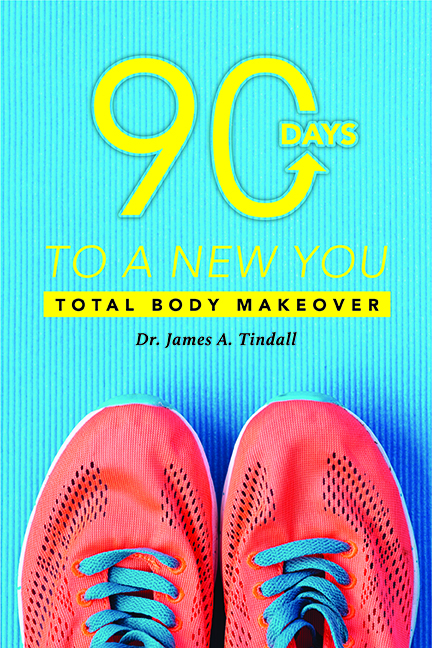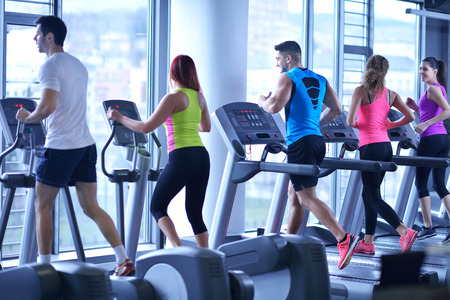The evidence is growing and is more convincing than ever! People of all ages who are generally inactive can improve their health and well-being by becoming active at a moderate-intensity on a regular basis.
Regular physical activity substantially reduces the risk of dying of coronary heart disease (CHD), the nation’s leading cause of death, and decreases the risk for stroke, colon cancer, diabetes, and high blood pressure. It also helps to control weight; contributes to healthy bones, muscles, and joints; reduces falls among older adults; helps to relieve the pain of arthritis; reduces symptoms of anxiety and depression; and is associated with fewer hospitalizations, physician visits, and medications. Moreover, physical activity need not be strenuous to be beneficial; people of all ages benefit from participating in regular, moderate-intensity physical activity, such as 30 minutes of brisk walking five or more times a week.
Despite the proven benefits of physical activity, more than 60% of American adults do not get enough physical activity to provide health benefits. More than 25% are not active at all in their leisure time. Activity decreases with age and is less common among women than men and among those with lower income and less education. Furthermore, there are racial differences in physical activity rates particularly among women.
Advertisement: Amazon (click on photo for more info)

Insufficient physical activity is not limited to adults. More than a third of young people in grades 9-12 do not regularly engage in vigorous-intensity physical activity. Daily participation in high school physical education classes have dropped from 42% to about 30%.
Why Should You Be Active?
Physical activity can bring many health benefits. People who enjoy participating in moderate-intensity or vigorous-intensity physical activity on a regular basis benefit by lowering their risk of developing coronary heart disease, stroke, non-insulin-dependent (type 2) diabetes mellitus, high blood pressure, and colon cancer by 30 to 50%. Additionally, active people have lower premature death rates than people who are the least active.
Regular physical activity can improve health and reduce the risk of premature death in the following ways:
1. Reduces the risk of developing coronary heart disease (CHD) and the risk of dying from CHD;
2. Reduces the risk of stroke;
3. Reduces the risk of having a second heart attack in people who have already had one heart attack;
4. Lowers both total blood cholesterol and triglycerides and increases high-density lipoproteins (HDL or the “good” cholesterol);
5. Lowers the risk of developing high blood pressure;
6. Helps reduce blood pressure in people who already have hypertension;
7. Lowers the risk of developing non-insulin-dependent (type 2) diabetes mellitus;
8. Reduces the risk of developing colon cancer;
9. Helps people achieve and maintain a healthy body weight;
10. Reduces feelings of depression and anxiety;
11. Promotes psychological well-being and reduces feelings of stress;
12. Helps build and maintain healthy bones, muscles, and joints; and
13. Helps older adults become stronger and better able to move about without falling or becoming excessively fatigued.
Who Benefits From Physical Activity? – Everyone!
The good news about regular physical activity is that everyone can benefit from it!.
Older Adults
No one is too old to enjoy the benefits of regular physical activity. Evidence indicates that muscle-strengthening exercises can reduce the risk of falling and fracturing bones and can improve the ability to live independently.
Parents and Children
Parents can help their children maintain a physically active lifestyle by providing encouragement and opportunities for physical activity. Families can plan outings and events that allow and encourage everyone in the family to be active.
Teenagers
Regular physical activity improves strength, builds lean muscle, and decreases body fat. Activity can build stronger bones to last a lifetime.
People Practicing Weight Management
Regular physical activity burns calories while preserving lean muscle mass. Regular physical activity is a key component of any weight-loss or weight-management effort.
People With High Blood Pressure
Regular physical activity helps lower blood pressure.
People With Physical Disabilities and Arthritis
Regular physical activity can help people with chronic, disabling conditions, improve their stamina and muscle strength. It also can improve psychological well-being and quality of life by increasing the ability to perform the activities of daily life.
Advertisement: WebMD (click on photo for more info)

Those Under Stress and Experiencing Anxiety and/or Depression
Regular physical activity improves one’s mood, helps relieve depression, and increases feelings of well-being. If you have any of these symptoms we recommend you begin a physical activity/exercise regimen as soon as you can. Check with your doctor before beginning an exercise or physical activity program.
Exercise is for all of us and along with good nutrition,is the true key to youth and vitality! See you in the gym, in the park, or around the track.






